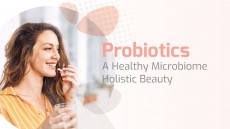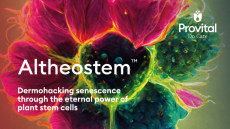‘Voice of the citizens’: European Citizens’ Initiative to protect animal testing ban hits 1.2 million votes
![With more than 1.2 million validated votes across 22 European countries, no other European Citizens' Initiative has ever achieved this level of support [Getty Images]](https://www.cosmeticsdesign-europe.com/var/wrbm_gb_food_pharma/storage/images/_aliases/wrbm_large/publications/cosmetics/cosmeticsdesign-europe.com/article/2023/01/27/european-citizens-initiative-for-cruelty-free-cosmetics-hits-1.2-million-votes-and-will-reach-european-commission/16121654-1-eng-GB/European-Citizens-Initiative-for-cruelty-free-cosmetics-hits-1.2-million-votes-and-will-reach-European-Commission.jpg)
Launched back in August 2021, beauty majors The Body Shop and Dove were part of the collective spearheading the ‘Save cruelty free cosmetics – Commit to a Europe without animal testing’ initiative. Launched with leading global animal protection groups Humane Society International (HSI); People for the Ethical Treatment of Animals (PETA); Cruelty Free Europe; Eurogroup for Animals; and the European Coalition to End Animal Experiments (ECEAE), the European Citizens’ Initiative (ECI)* called on the European Commission to protect and strengthen the cosmetics animal testing ban; transform EU chemicals regulation; and modernise science in the EU.
More specifically, it called for “robust implementation” of the EU ban on animal testing for cosmetic ingredients; a “full transition” to non-animal methods for chemical safety tests; and commitment to a plan to phase out “all experiments on animals”.
*A European Citizen’s Initiative is a petition-like mechanism designed to enable EU citizens to participate directly in the development of EU policies. The initiative needs more than one million signatures within 12 months, with minimum numbers in at least seven EU countries, before the European Commission will decide on what action to take.
This week, the ECI had been validated with more than 1.2 million signatures meaning the European Commission now had to meet with campaigners and address the concerns raised. According to campaigners, no other ECI had ever received this level of support across so many countries.
“To be successful, an ECI has to collect at lease one million validated signatures and has to meet a minimum target across at least seven different EU countries. This ECI passed the minimum target in 22 different countries, demonstrating pan-European support for ending animal testing,” they said.
MEPs supportive of ECI
Tilly Metz, MEP for the Greens-European Free Alliance, said this ECI powerfully backed up the demand of the European Parliament to phase out animal testing for good. “With the voice of the citizens added to the chorus, the Commission cannot ignore the loud calls to accelerate the transition to non-animal science,” Metz said.
Niels Fuglsang, MEP for the Progressive Alliance of Socialists and Democrats, agreed and said the ECI added to long-standing calls from European citizens for cruelty-free cosmetics. “This European citizens’ initiative is another reminder to the Commission that EU citizens will not stand by while loopholes in legislation are not closed to end all animal tests on cosmetics,” Fuglsang said.
Sirpa Pietikäinen, MEP for the European People’s Party, said the validation of this ECI was especially timely, given the ongoing updates and revision of the European chemicals regulation. “From today, no additional animal tests should be requested to fill information gaps about chemicals. We need to move to safer and more humane safety assessments of chemicals,” Pietikäinen said.
Anja Hazekamp, MEP for the Left, said the Commission now had to listen to its citizens and make necessary changes a reality. “The message from citizens has never been clearer or more aligned with the voices of scientists, industry, NGOs, and politicians. Everyone understands that a plan to phase out animal experiments is a win-win situation for humans, other animals, and the environment,” Hazekamp said.
Unilever weighs in on ‘next steps’
Dove-owner Unilever released a statement describing the validation of the ECI as “great news”.
“It sends a very clear message to the European Commission that EU citizens don’t want animal testing. They want to see the ban on animal testing of cosmetics ingredients upheld, and a roadmap to end animal testing across the EU for good (...) March 2023 will mark ten years since a full ban on the sale of cosmetics that include ingredients tested on animals came into force in the EU. At the time, Europe led the world with this change – and we hope that positive momentum will now get back on track,” the company said.
Adding to this, Dr Julia Fentem, head of Unilever’s Safety & Environmental Assurance Centre (SEAC), said: “We must persist in speaking up, with passion, conviction and commitment, if we are to seize the opportunity to fundamentally change the methods and data used to assure chemical safety.”
“…The next three to five years will be critical in implementing regulatory change by agreeing and working on a shared roadmap to accelerate phasing in non-animal approaches based on modern science while phasing out animal testing,” Fentem said.
She said the European Chemicals Agency ECHA’s plans to hold a workshop in May this year around new approach methodologies towards an animal-free regulatory system for industrial chemicals formed an “important step towards this”.
Beauty noise, collaboration and innovation
Recent years had seen the beauty and personal care industry extensively joined forces in the plight to end animal testing on cosmetic ingredients and products globally, with a series of public statements and official letters, industry initiatives and individual brand actions worldwide.
In November 2020, industry majors including Procter & Gamble, L’Oréal, Unilever and Avon signed an open statement issued by the Human Society International’s Animal-free Safety Assessment Collaboration (AFSA) claiming ECHA and its Board of Appeal was undermining the EU animal testing ban on cosmetics. And in December 2020, 400+ beauty companies and brands signed an open letter addressed to the European Commission, Parliament and Council calling for new animal testing to be stopped, in adherence to the existing EU animal testing ban.
In June 2022, industry association Cosmetics Europe unveiled its animal-free safety assessment New Science Programme, designed to drive forward non-animal safety assessment capabilities, regulatory use of these alternatives and education and training across industry.
And in October 2022, Humane Society International (HSI) – one of the key campaigners for the recently validated ECI – published a white paper outlining a proposal to revise the EU chemicals regulation REACH. Published in Regulatory Toxicology and Pharmacology, the paper described how the regulation could be modernised to accelerate wider use of new approach methodologies (NAMs) and push ahead with a truly animal-free cosmetics testing future.
John Chave, director-general of pan-European trade association Cosmetics Europe, recently told CosmeticsDesign-Europe the revision of the EU REACH Regulation, alongside other regulatory reviews, was part of an 'unprecedented' level of regulatory change that industry had to stay engaged and informed on.
![Today, the International Collaboration on Cosmetics Safety (ICCS) is made up of 35 beauty companies, suppliers, trade associations and NGOs, though many more are in final stages of becoming members [Getty Images]](https://www.cosmeticsdesign-europe.com/var/wrbm_gb_food_pharma/storage/images/_aliases/wrbm_medium/publications/cosmetics/cosmeticsdesign-europe.com/article/2023/02/13/international-collaboration-on-cosmetics-safety-iccs-talks-funding-research-gaps-and-global-collaboration/16164881-1-eng-GB/International-Collaboration-on-Cosmetics-Safety-ICCS-talks-funding-research-gaps-and-global-collaboration.jpg)
![The International Collaboration on Cosmetics Safety (ICCS) aims to advance the adoption of animal-free safety assessments for cosmetics and personal care products and ingredients worldwide [Getty Images]](https://www.cosmeticsdesign-europe.com/var/wrbm_gb_food_pharma/storage/images/_aliases/wrbm_medium/publications/cosmetics/cosmeticsdesign-europe.com/article/2023/02/08/animal-free-cosmetics-safety-testing-global-collective-international-collaboration-on-cosmetics-safety-iccs-launches/16154090-1-eng-GB/Animal-free-cosmetics-safety-testing-global-collective-International-Collaboration-on-Cosmetics-Safety-ICCS-launches.jpg)
![The beauty industry can work closely with chemical trade associations to better understand and manage supply chains moving forward, especially amidst ongoing disruptions and today's climate crisis [Getty Images]](https://www.cosmeticsdesign-europe.com/var/wrbm_gb_food_pharma/storage/images/_aliases/wrbm_medium/publications/cosmetics/cosmeticsdesign-europe.com/article/2022/12/06/chemical-business-association-says-sustainable-supply-chains-are-key-for-beauty-industry-amidst-globalisation-and-climate-crisis/16001921-1-eng-GB/Chemical-Business-Association-says-sustainable-supply-chains-are-key-for-beauty-industry-amidst-globalisation-and-climate-crisis.jpg)
![The animal welfare charity hopes its REACH revision proposal drives wider uptake and acceptance of animal-free new approach methodologies (NAMs) for cosmetics safety assessment [Getty Images]](https://www.cosmeticsdesign-europe.com/var/wrbm_gb_food_pharma/storage/images/_aliases/wrbm_medium/publications/cosmetics/cosmeticsdesign-europe.com/article/2022/10/26/humane-society-international-reach-revision-proposal-calls-for-echa-procedural-technical-and-structural-change/15885212-1-eng-GB/Humane-Society-International-REACH-revision-proposal-calls-for-ECHA-procedural-technical-and-structural-change.jpg)






![Chinese study highlights mental health challenges in atopic dermatitis, emphasising holistic patient care. [Getty Images]](https://www.cosmeticsdesign-europe.com/var/wrbm_gb_food_pharma/storage/images/_aliases/wrbm_tiny/publications/cosmetics/cosmeticsdesign-asia.com/headlines/formulation-science/chinese-research-linking-atopic-dermatitis-to-mental-health-underscores-need-for-holistic-care/17040623-1-eng-GB/Chinese-research-linking-atopic-dermatitis-to-mental-health-underscores-need-for-holistic-care.jpg)








